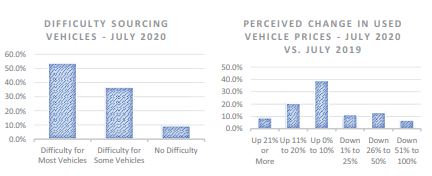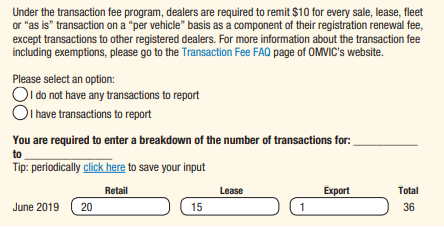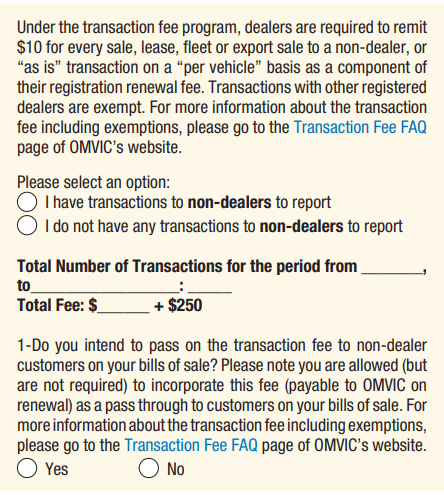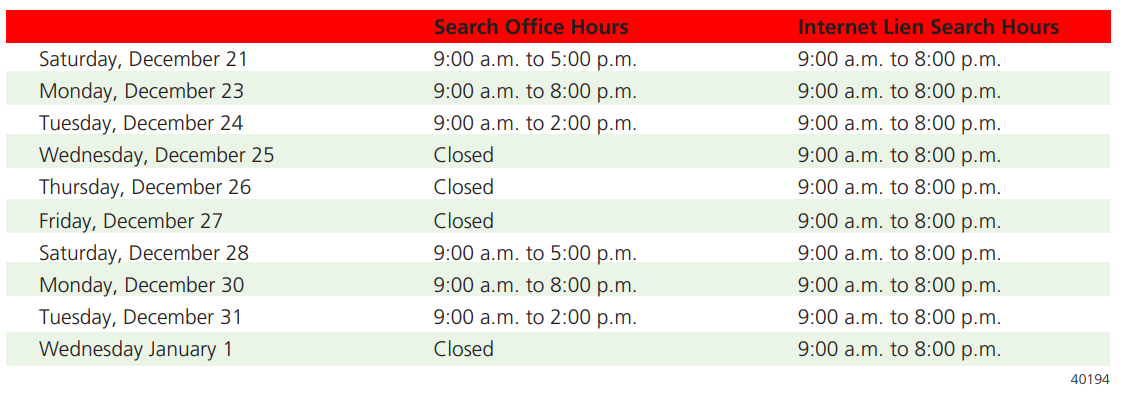
DEALER PLATE REFORMS
Best News on Dealer Plates in 16 years
We are pleased to announce proposals for the most significant regulatory changes to Ontario’s Dealer Plate rules in 16 years. That’s how long its been since the UCDA successfully worked to create the Dealer Plate currently used by dealers.
As in business, in politics timing is everything. We have been seeking the type of reform that has now been proposed for over two decades.
When we re-opened reform discussions with the Ministry of Transportation (MTO) in the spring of 2019, we found that they were serious about reducing barriers to business … what Premier Ford’s government calls “red tape”. All Ontario Ministries have been asked to find ways to reduce regulatory barriers to both business and consumers.
We asked the Trillium Automobile Dealers Association to work with us and together we approached MTO with a list of asks. We had an important meeting in late January with MTO, and other stakeholders such as the police, to explain why these reforms were necessary and why, without them, barriers to effective use of Dealer Plates would remain.
Happily, our submissions took root and in a flurry of announcements just before Thanksgiving, the Ontario Government announced the following proposals:
- Dealer Plate on Light Duty Commercial Vehicles (i.e. pickup trucks) for Private Use “loaded with goods”
Dealer Plates cannot currently be used on commercial motor vehicles carrying goods for private use. MTO is proposing to amend Regulation 628: Vehicle Permits, to allow the use of a Dealer Plate on a light duty commercial vehicle for private use that is “loaded with goods” for personal use (i.e. pickup trucks displaying a Dealer Plate). - Allow vehicles equipped with Dealer Plates and a New Vehicle Information Statement to drive on Ontario roads
The Ontario government is proposing to reduce the burdens on business by clarifying that New Vehicle Information Statements (NVIS) can be used in place of a valid registration permit when a new motor vehicle with a Dealer Plate is driven on the road in Ontario.
This would reduce the administrative burden and costs for businesses and the courts by eliminating tickets that are incorrectly issued to motor vehicle dealers driving new vehicles with Dealer Plates prior to sale. - Reduce costs and increase opportunities for businesses by making it easier to buy and sell vehicles at auction
Ontario proposes to permit people to drive motor vehicles with Dealer Plates without a registration permit when purchased at auction. This would make it easier for dealers to buy and sell vehicles at auction, would create new opportunities for small businesses and reduce the administrative burdens on business and customers.
You can submit your support for the proposal by November 1st at: https://tinyurl.com/yxp96pat
Repair And Run
Maybe it’s the hard times lately, but we are hearing more and more from Members who do repairs about folks running out on their repair bills.
Everyone has heard of the old pathetic tactic of running out on a restaurant bill, “dine and dash”. The latest is “repair and run”. The dealer/repair facility fixes the vehicle, but before they can present the bill, the customer gets in the vehicle and drives away!
Unfortunately, we are also finding many of our members are far too relaxed when taking customer vehicles in for repairs in the first place. Some members do a bit of paperwork, but often get very little information beyond name (sometimes just the first name) plate and VIN. Others complete no paperwork at all!
It’s pretty hard to collect a repair bill when “Jim” from Toronto takes off with his car. You don’t even know where Jim lives, much less his last name!
At a minimum, don’t start a repair without paperwork containing full name, address, VIN, plate, and driver’s licence number. No consumer will be surprised by this. Most large repairers do this all the time.
Better yet, once the repair is done, secure the vehicle and get the customer to review and SIGN the work order or invoice before you let them have access to the vehicle. If they take off, at least then you can slap a repair lien on it and repossess it (which you can’t without a signed acknowledgment of the debt).
Even without a signed invoice, with a name and address, you can send them a letter and if need be, serve a lawsuit to collect the debt in small claims court.
Dressing it up – Dress Codes and Probationary Workers
In Ontario, the Employment Standards Act does not require any specific minimum notice for an employee dismissed in his or her first three months of employment. As a result, many people believe every employee is on “probation” for the first 3 months of their employment and can be fired for any reason, without consequence.
This is incorrect. First, employees are only on “probation” if it is a specified term of their initial employment. This must be made clear at the outset and agreed to. Second, such an employee may be entitled to damages during this period for wrongful dismissal or … a human rights violation.
Damages may be minimal, but who needs the hit to reputation such an action could cause a dealer?
In Alberta, one dealer is learning that lesson the hard way.
The firing of a 20 year old female “probationary” employee appears to have been caused by a perceived violation of the dealer’s dress code for employees. As is often the case in such disputes, the “fog of war” clouds the facts, so all we have to go by is the jousting in the media and input from various “experts”. The firing of a 20 year old female “probationary” employee appears to have been caused by a perceived violation of the dealer’s dress code for employees. As is often the case in such disputes, the “fog of war” clouds the facts, so all we have to go by is the jousting in the media and input from various “experts”.
But given comments from the young woman and the dealer, it would seem some employees took offense to the blouse the woman chose to wear to work. Some apparently felt it was “see-through”, provocative or inappropriate for the workplace. For her part, she says she was wearing the same top when she was hired!
The real problem, as is often the case in such matters, is the employer does not seem to have had a clearly spelled out policy and no written employment guidelines, to which they could point. Such rules should be clear, enforced evenly and fairly and violations punished in proportion to the severity of the violation.
Now the woman is threatening to bring a human rights violation claim against the Edmonton-based dealer and, while the damages will likely be minimal, the legal fees, and negative press, will not be.
Online Defamation
We have written about the growing body of caselaw developing over the wild and woolly world of social media “complaints” about businesses.
Social media has become very important to dealers and ratings matter to many. Dealers have often noted the small but vocal group of “entitled” consumers who are set off by even minor problems or complaints with their used vehicle and who resort to rantings and ravings on the internet.
The trend seems to suggest that it’s getting harder and harder for businesses to resort to the courts to take action against the more outrageous “critics” out there.
When you start to read the following recent case, you might think it’s a slam-dunk that the business will be successful. The sheer nastiness and personal nature of the online posting certainly seems to “cross the line”. Read on however:
This whole silly dispute started over what the customer felt was an inexcusable delay in obtaining the faucet and toilet roll holder she had ordered.
It degenerated into accusations and counter-accusations of assault. The police were called and even though the items arrived the next day and were paid for and picked up, the customer and her mother simply could not leave it alone!
They began posting to social media and, as the judge in the case observed “[t]o say the posts were offensive and virulent fails to do them justice. It was more a personal attack than it was a true review …”.
You might think the lawsuit that the store and the store’s owner brought for defamation would be a slamdunk, right?
Wrong!
Apparently the judge felt there was a “public interest” somewhere in these postings. That finding is important because of what is called anti-SLAPP legislation in Ontario, meant to protect a consumer’s right to free expression from the oppressive threat of litigation by businesses.
The trouble is, the law is supposed to facilitate a balance between the right to speak one’s mind on the internet and the damage done to personal/business reputations by the allegedly defamatory words.
It’s hard to see much balancing done in this case or to see where the “public interest” lies in any of this.
Having said that, until appealed or overruled in another similar case, this reasoning stands and should be a caution to dealers contemplating court as an option to deal with the more outrageous social media ‘warriors’ out there.
Our advice is to ignore this silliness. Trust that most readers will determine such posts say much more about the person posting, than they do about the business being targeted!
If you must respond on social media, state your response without emotion, stick to the facts, be courteous and brief. Depending on how ridiculous the post is, you might invite the poster to contact you to see if things can be worked out.
Do not, under any circumstance, stoop to their level and be rude, offensive or discourteous in any social media reply.
Invariably, that would only make things worse!
Dealer Quiz
- When is a Status Indian purchasing a vehicle from a dealer exempt from paying any HST?
a) always
b) when the Status Indian lives on a Reserve
c) when the vehicle is registered in the Status Indian’s name
d) when the vehicle is delivered to the Status Indian on a Reserve - A vehicle is consigned to a dealer. The dealer sells the car to a consumer and two weeks later the engine requires replacing. Who is most likely responsible for the repair costs?
a) the consignor – it was their car
b) the consumer – who was told consignment
vehicles come with no guarantees
c) the dealer – who is responsible for any vehicle sold
d) OMVIC - A vehicle with a lien registered on it cannot be transferred to another person at a licence office.
a) True
b) False - A finance lien, such as what a bank would register under the Personal Property Security Act (PPSA) to secure a vehicle loan, is not the same thing as a repair lien, which is what a mechanic might register on a vehicle to secure an account for an unpaid repair bill. If the bank registers their lien before the mechanic on the same vehicle, who has priority?
a) the mechanic
b) the bank - A registered salesperson can legally sell vehicles for:
a) only the dealer by whom the salesperson is employed
b) any dealer to whom the sales person is registered with OMVIC
c) any dealer as long as the employing dealer has given written consent
d) any dealer as long as OMVIC is notified in advance
Minimum Wage
Minimum wage rates in Ontario increased on October 1, 2020. This increase is tied to the Ontario Consumer Price Index for 2020.
The increase to the general minimum wage was 25 cents, which brings the new rate to $14.25 an hour from $14.00 an hour.
For a chart showing all minimum wages in Ontario, including for students, etc., please see this link:
James Bond Would Have Paid
A woman in B.C., who owned a valuable “James Bond” edition Aston Martin DB9 made the wrong decision not to pay her repair bill and then doubled-down and tried to sue the dealer and the mechanic who fixed her car!
She bought the vehicle for $200,000 in 2014 and in 2015 she ran it into a rock. Carrying minimal insurance, the $85,000 to $135,000 estimated cost to repair was her responsibility. But, when she was presented the final repair bill, she felt it was too high.
She sued the dealer for selling her the vehicle in the first place, claiming they took advantage of her wealth and poor English skills. She sued the garage for “hiking” the bill and both of them for $300,000 in “pain and suffering”, a term much used and rarely successfully proven in court.
The judge was not having any of it. The court dismissed her claim and ordered her to pay the repair bill of $85,549, pre-judgement interest of $4,078, legal fees and storage fees.
Her legal adventure ended up costing her $328,930.50.
We have to assume she left the courtroom shaken … but not stirred?
Think E-Transfers Are Secure?
Think Again
Pat Foran of CTV News reported on a case of a woman who sold jewelry and accepted payment by e-transfer. The woman thought once the $1,750 was deposited to her account it was final and secure.
Think again. Apparently, 5 months after this transaction, her account was frozen as the TD Bank identified that the funds deposited to her account were “fraudulent”.
Her mistake, according to the bank, was accepting funds from someone she did not know. More specifically, the bank says:
“When sending an Interac e-transfer, it’s important to ensure the recipient’s email address is correct, and the security question and answer is not easily guessable.”
In another case identified in the report, a man thought he was sending $1,000 to his lawyer. Somehow, the funds never made it to his lawyer and were in fact “intercepted” by some unknown third party.
The woman eventually got her $1,750 back in her account, but the man never did.
As dealers use this method of payment more and more these days, please take the bank’s advice to heart and be absolutely sure about the email address you use for sending or receiving funds. And make those security questions difficult enough so that some bad actor cannot easily guess the answer.
It seems e-transfer is only as secure as YOU make it.
Answers
- The answer is d), when delivered to a reserve. If the Status Indian takes delivery from the dealer’s premises, they are exempt from the 8% Ontario portion of the HST, and would pay 5% tax.
For more information see:
https://tinyurl.com/y2hwhhwj - The answer is c). Dealers are responsible for any vehicle sold, including consignment sales. This is why Members need to be cautious about entering into any agreements with a vehicle owner to sell it on consignment.
- The answer is False. Service Ontario does not prevent the registration of a vehicle with a lien on the VIN from being transferred. This is why doing a lien search is so important!
- The answer is a), the mechanic. Valid repair liens, registered under the Repair and Storage Liens Act, take priority over pre-existing liens registered under the PPSA.
- The answer is b). Salespeople must be registered with OMVIC to buy and sell vehicles for one or more registered dealers. They may not buy or sell for dealers to whom they are not registered.














